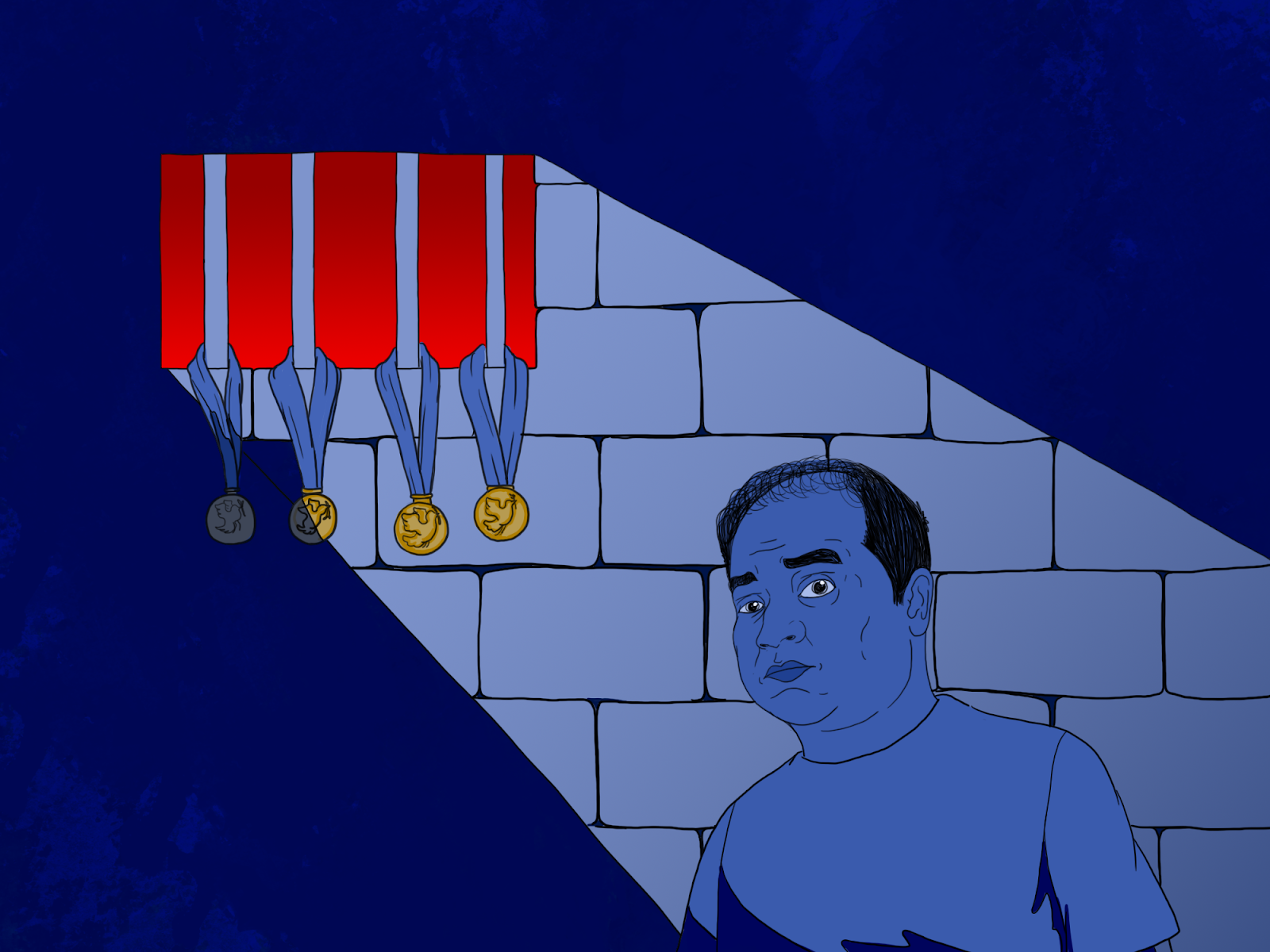Jailed Uyghur scholar wins top EU human rights prize
Like the U.S., European countries are getting louder on human rights in China after several years of relative silence. This month, jailed Uyghur scholar Ilham Tohti received two human rights awards from Europe, including the European Parliament's Sakharov Prize for Freedom of Thought.

Photo credit: SupChina illustration
Like the U.S., European countries are getting louder on human rights in China after several years of relative silence. This month, jailed Uyghur scholar Ilham Tohti received two human rights awards from Europe.
- The European Parliament awarded Ilham Tohti its Sakharov Prize for Freedom of Thought, the top human rights prize of an official European Union organization, according to Deutsche Welle.
- Earlier this month, he also received the Vaclav Havel Human Rights Prize from the Council of Europe, which is separate from official EU bodies but has a large overlap in country memberships and associations.
- Ilham Tohti was jailed for life in 2014 by Chinese authorities who accused him of inciting separatism in Xinjiang, the largely Muslim region that is now known for its archipelago of concentration camps.
Tohti, meet totalitarianism
Ilham Tohti’s arrest was a precursor to the atrocities currently underway in Xinjiang. As journalist Ian Johnson found in a 2014 New York Review of Books piece, Ilham Tohti was seen by Chinese intellectuals as markedly moderate in comparison with many other Uyghurs, especially those overseas who did advocate for Xinjiang independence.
A friend of Ilham Tohti’s, Tibetan activist Tsering Woeser, described him as “someone who doesn’t want independence, who wants to live in China and says he’s a Zhongguoren [an umbrella term for a Chinese person of any ethnicity] but wants Xinjiang to have more autonomy.”
But the Chinese authorities apparently “don’t want moderate Uyghurs,” one intellectual said, because then “you can say to the West that there are no moderates and we’re fighting terrorists.”
How will Beijing react to the award?
“Tohti has dedicated his life to advocating for the rights of the Uyghur minority in China. Despite being a voice of moderation and reconciliation, he was sentenced to life in prison following a show trial in 2014. By awarding this prize, we strongly urge the Chinese government to release Tohti and we call for the respect of minority rights in China,” European Parliament President David Sassoli said in a statement.
Beijing is sure to direct anger at the EU upon the award ceremony in Strasbourg on December 18. It remains to be seen, however, if the consequences of the EU standing up for human rights in China are anywhere as severe as for Norway, which was shunned by Beijing for six years after the Nobel Peace Prize went to literary critic and dissident Liú Xiǎobō 刘晓波. Liu died in state custody in 2017.
But the pushback against the EU from Beijing is likely to be much milder than Norway’s treatment. For one thing, it’s much harder to bully a political union of 28 countries. But perhaps more importantly: very few Chinese people know what the Sakharov Prize is, whereas almost every Chinese person knows of the Nobel, and the country’s lack of winners is a constant source of angst in Chinese media. The Sakharov Prize is much less humiliating for the Chinese government than Liu Xiaobo’s Nobel award.





